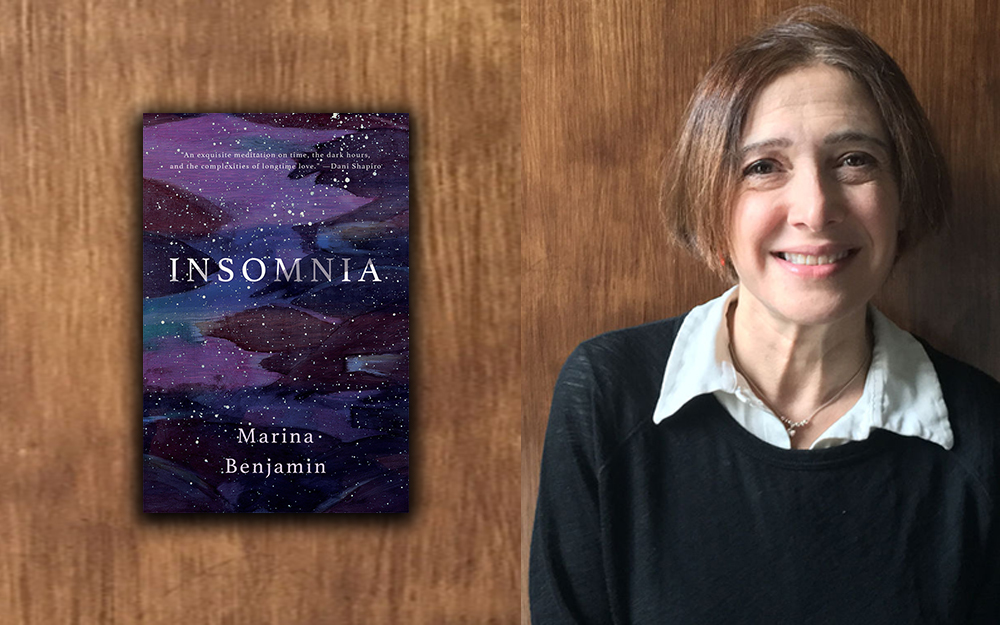
By Heidi Simmons
—–
Insomnia
by Marina Benjamin – nonfiction
—–
To wake up refreshed, energized and ready for the day ahead is a beautiful but often rare thing. For many, sleep doesn’t come easily and the ability to doze off quickly and sleep all night sounds more like a dream than a reality. Insomnia by Marina Benjamin (Catapult, 134 pages) reveals a hyper wakeful mind and the long hours of darkness when one cannot sleep.
The statistical data on insomnia is significant enough to call it an epidemic. Sixty million Americans suffer from the sleep disorder. Fifty percent of adults experience occasional symptoms of insomnia. Eighty-three percent of people who suffer from depression also experience symptoms of insomnia. Insomnia is one of the major contributing factors to fatal car accidents. Those over 60 years old and people with a higher level of education are more likely to experience insomnia.
If you haven’t had to deal with insomnia you are fortunate. If you want to know what it feels like or if you have suffered from sleeplessness, author Benjamin’s Insomnia is not only a meditation but also a respite from the long, lonely nights.
Benjamin explores insomnia through literature, art, philosophy, psychology, pop culture and a myriad of other notions, thoughts and ideas as she takes apart nights without sleep.
Poetic and insightful, profound and magical, personal and universal, Benjamin nails insomnia in short paragraphs and extended passages. The book has no chapters or headings. This memoir is not an organized narrative that leads to a cure, but rather an honest voice of one who suffers in the dark without sleep.
Benjamin delivers so much truth on the pages, that if you suffer or have suffered insomnia, you will quickly recognize and instantly relate.
Benjamin admits, “The matter of what to do with a overactive brain determined to forge ideas and connections in conditions of sensory blackout troubles me.”
In another paragraph, Benjamin says: “It is as if all the lights in my head had been lit at once, the whole engine coming to life, messages flying, dendrites flowering, synapses whipping snaps of electricity across my brain; and my brain itself, like some phosphorescent free-floating jellyfish of the deep, is luminescent, awake, alive.”
Benjamin gets personal and considers a lifetime of sharing a bed and the way she uses her bed: to sleep, to relax, to contemplate, to have sex, to watch her husband in a deep, quiet sleep.
The beauty of Insomnia — the book — is that the author is not angry or bitter about her sleepless condition, it is an acceptance. Benjamin examines sleep illness, sleep theories, sleep therapies and sleep stories, not to just inform the reader but to consider the nature of how and why we do or do not sleep.
Benjamin concludes in her sleep memoir/manifesto: “This is what I wish to effect in my own life, so I might better discern the flicks and flecks of pink so casually strewn across my fields of vision and experience. I want to flip disruption and affliction into opportunity, and puncture the darkness with stabs of light. This is the song of insomnia, and I shall sing it.”
I love this little book and have a deep appreciation of how succinct Benjamin articulates the intense feeling of getting through the night without any or very little sleep. She is acutely aware of the sounds and colors of night that is both intense and soothing.
Insomnia now has a permanent place on my nightstand. It is there for me to pickup before I try to sleep or to remind me I am not suffering alone. If there is a cure, it is to not fight against insomnia, but go along for the strange, dark – perhaps magical – ride. In the darkness, there is enlightenment.
Insomnia may be a gift as much as it feels like a curse. Rest well dear readers and may you have a sweet night’s sleep.












































